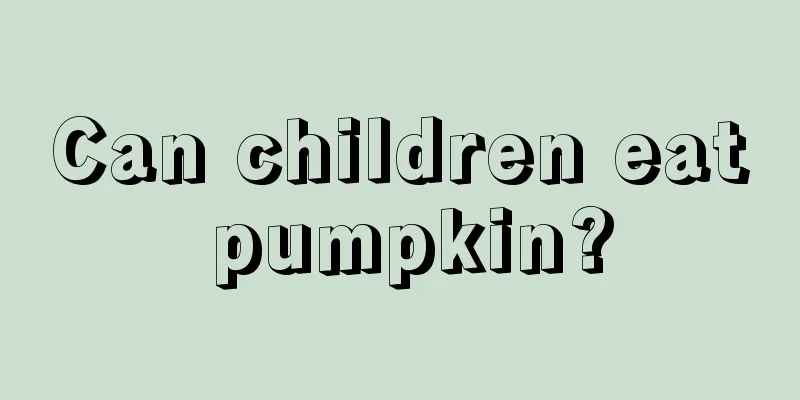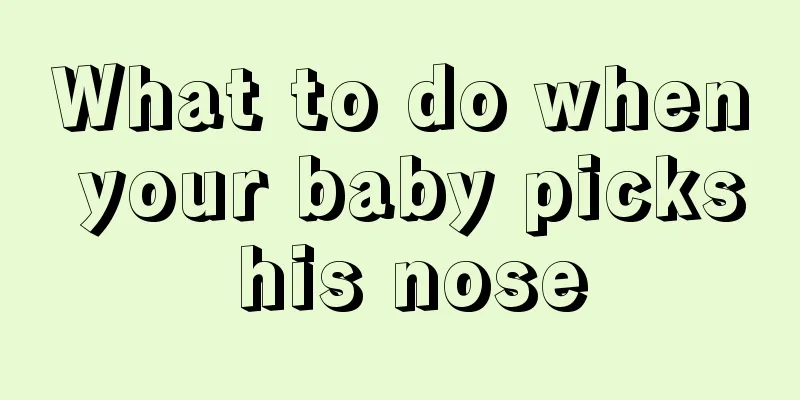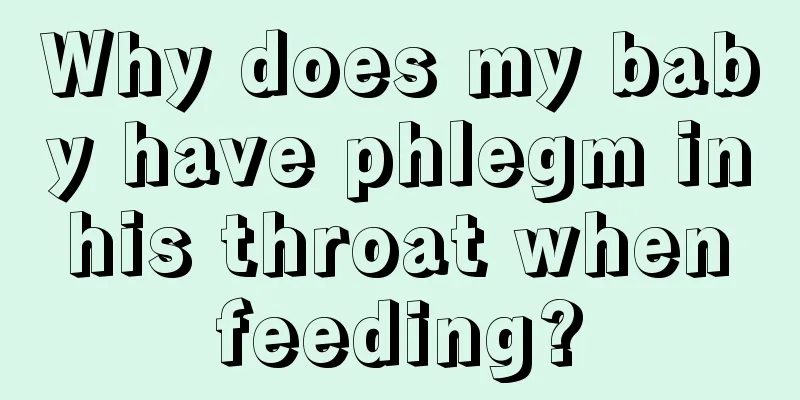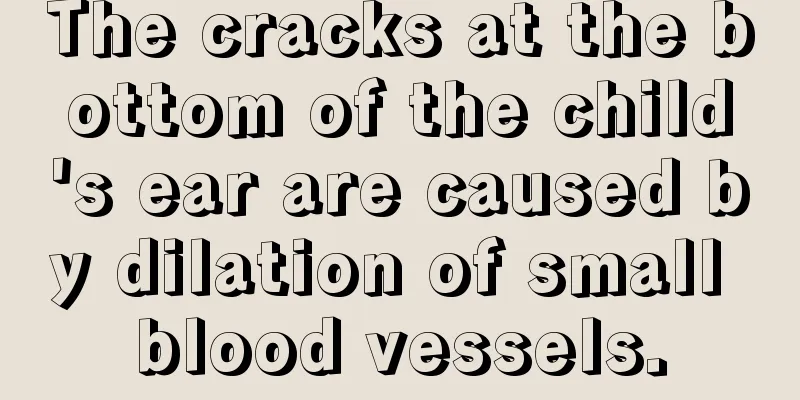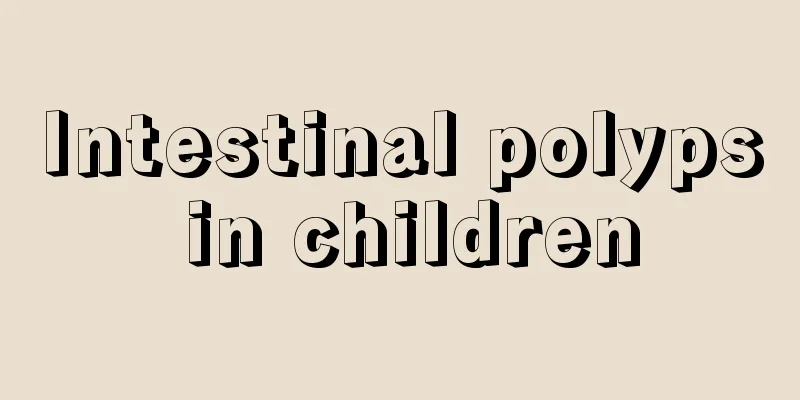Should we stop our baby from biting, being stingy, and other eight behaviors?
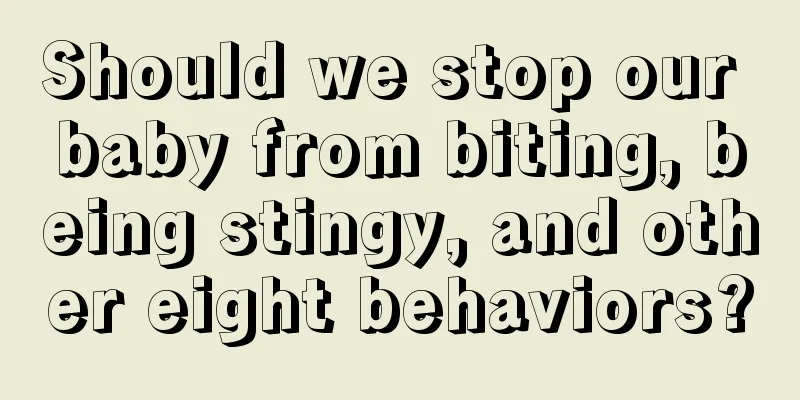
|
I don't know why my baby likes to bite people? Some little ones like to tear paper and throw things... What should I do? What should I do? Let's find out whether parents should stop babies from doing the following eight behaviors in life. Behavior 1: Biting Analysis: When the baby is 1 year old, biting behavior should be stopped! When the baby is around 4 months old and is about to grow teeth, he will bite toys or the people closest to him due to discomfort such as swollen gums. At this time, he does not understand whether biting is right or wrong, and even if his parents stare at him and say "Don't bite", it is useless. The correct approach is to give your baby some vegetable and fruit slices, biscuits, or teething sticks and teethers to provide him with more opportunities to chew. This will relieve the discomfort of teething and the baby will not bite others. When the baby is about one year old, he will sometimes bite people when he is excited. He will not only bite the adults around him and the babies he plays with, but also bite himself. This is actually a way for him to express his emotions, but he used it in the wrong place. Parents should stop it in time and tell him clearly and seriously that this is "not allowed" behavior. Babies of this age can already understand what adults mean. It should be noted that parents need to figure out the reason why the baby bites others. Is it because the baby is losing his temper or does he want to attract other people's attention? Only by targeting the problem and prescribing the right medicine can the baby be guided to deal with the issue of "biting" correctly. Behavior 2: Tearing Paper Analysis: Don’t stop them, let them have fun while tearing paper! When the baby is six or seven months old and finds that he can change the shape of paper and make sounds through hand movements, he will feel happy and his curiosity will be satisfied, so he will have a "special liking" for tearing paper. This is an exploratory behavior based on curiosity, and it is also a manifestation of the baby's active and spontaneous learning. Parents should not prevent this behavior, but encourage it. Because tearing paper can not only exercise the baby's hand-eye coordination ability, but also exercise small muscles, develop fine hand movements, and develop intelligence. Parents can guide their babies to tear the paper into small pieces or even scraps, and they can also slowly teach their babies to tear out shapes and outlines. This way, tearing paper becomes a fun-filled activity! It is worth reminding that parents should not tear valuable documents or bills for their babies. At the same time, they should also pay attention to whether the tearing paper used by the baby is hygienic to prevent the spread of germs. Behavior 3: Throwing things Analysis: Appropriate cognitive education can be carried out, but strict prohibition is not recommended! When the baby is about 9 months old, he will be very keen on the game of "throwing things". The baby will consciously throw away any object that can be caught, and laugh happily. Moms, have you noticed that no matter whether it is building blocks, balls or shoes, everything that falls to the ground will make different sounds, and the baby is also observing and exploring! So parents don’t have to worry about whether this is the beginning of the baby’s aggressive behavior, and don’t rush to stop the baby from throwing things. In the process of throwing things, the baby's hand-eye coordination ability is exercised, and he or she also has a new understanding of various objects. Parents can play the "throw and pick up" game with their baby, and at the same time guide the baby to cultivate the good habit of picking up things after throwing them away, and let the baby know that he has to pick up things he throws by himself. Of course, parents can also do some necessary cognitive education, such as telling the baby what can be thrown and what cannot be thrown, and also choose objects that are resistant to falling for the baby to play with! Behavior 4: Playing with genitals Analysis: It needs to be stopped, but don’t scold loudly. Use methods to divert the baby’s attention and interest. When a boy is 10 months old, he often likes to grab his "little penis" with his hands, and sometimes he pulls it very hard, which is very annoying! In fact, playing with the genitals of a boy is a common exploratory behavior. To him, the "little penis" is just a part of the body like the belly button, fingers and toes, but touching the genitals will give him a happy feeling, so he will unconsciously play with it often. In fact, baby girls also exhibit similar behaviors, such as rubbing or caressing. Parents are often overly nervous and think that this is a shameful bad habit or sexual behavior. In fact, parents should first divert the baby's attention, give the baby interesting toys or arrange rich activities to keep the baby's hands busy and leave him no time to take care of his "little chicken"; secondly, as the baby grows older, he will become curious about sex, and parents can use simple and easy-to-understand sentences to answer the baby's sexual questions. It should be noted that parents should regularly check whether their baby's genitals are clean and have any abnormalities, so as to eliminate the baby's adverse physiological stimulation and better protect the baby's genitals. Behavior 5: Not eating properly and playing with food Analysis: Don’t reprimand him harshly, guide him appropriately and let him eat by himself. Many babies eat very well when they first start eating complementary foods, but after they turn one year old they often grab the food in the bowl, squeeze and knead it, making a mess, which often gives their mothers a headache. In fact, when the baby is about one year old, he will become interested in eating by himself. When eating, he can't help but grab the food on the plate. This is a way for the baby to explore cognition and it is also a pleasant experience. Being allowed to use their hands to get familiar with these foods will go a long way in developing good eating habits in babies. When the baby successfully picks up a small ball of rice and puts it into his mouth, he will feel a sense of accomplishment! This is completely different from the feeling of being fed. So parents should agree that their babies can eat food with their hands. If you are worried that your baby will dirty his clothes, you can put a bib on him. Even if he eats a "mess", parents should not blame him, so as to enhance his interest in eating. Behavior 6: Hiding Things Analysis: No need to stop it, just remember to pack up your valuables at home! When the baby is about one and a half years old, he will fall in love with the game of "hiding things". His own toys, mother's mobile phone, father's keys... are all hidden. In the process of hiding and searching for objects, the baby's memory is exercised; when the hidden objects are found, it can produce a strong sense of accomplishment and enhance the baby's self-confidence. Therefore, parents should trust and encourage their baby's behavior of hiding things, and not use "no" to hit him. Parents may wish to play the "hide and seek" game with their baby. This will not only promote the parent-child relationship, but also help them understand the pattern of the baby's hiding of items. In case something important is hidden, it can be quickly found in the baby's "secret base". Of course, parents should also pay attention to putting away small items that are valuable or dangerous to babies, so that the baby will not become interested in them and touch or hide them at will, causing trouble. If you are worried that your baby will dirty his clothes, you can put a bib on him. Even if he eats a "mess", parents should not blame him, so as to enhance his interest in eating. Behavior 7: Climbing Analysis: Don’t stop it, but be sure to take safety measures! After learning to walk, as the strength of their legs increases, babies will like to climb higher than when they were learning to crawl. This kind of physical exercise is beneficial to the development of the baby's frontal lobe and cerebellum, and also helps to enhance the baby's sense of space. Therefore, at this time, parents must not blindly say "No" so as not to undermine the baby's self-confidence and dampen his enthusiasm. But it is worth noting that when babies play "climbing" games, the distance between mother and baby should be kept within an arm's length, and a safe activity area should be created to avoid danger. For example, do not place items that can be used as footrests on windows and balconies, wrap table legs and corners with cushions, put away all sharp or fragile "dangerous items", and lay a thick game mat on the ground... Under the premise of ensuring safety, fully satisfy the baby's desire to climb and explore! Behavior 8: Being stingy Analysis: Timely intervention is needed to guide the baby to learn to share. After the baby is one and a half years old, he will become very "stingy", often holding on to his toys tightly and refusing to share with other children. This is because babies under the age of 3 are in the "egocentric stage" and cannot distinguish the difference between "you, me, and him". Parents do not need to rush to force their babies to be "generous". Instead, they should focus on guidance, allowing the babies to establish the concept of ownership and then slowly learn to share. During this guidance process, parents can consciously encourage their babies to make more friends and play with peers. When the baby integrates into the "group", the "stingy" phenomenon of exclusiveness will be greatly improved. After experiencing the joy of sharing with others, the baby will naturally be happy to share with others. Most parents nowadays have only one child, so they should pay attention to setting a good example. The influence of parents can help babies cultivate the good habit of "being willing to share". |
<<: 4 suggestions for baby's nutritious diet in summer
>>: 5 ways to care for baby sweating in summer
Recommend
What should children pay attention to in case of myocardial strain
Many friends will suffer from myocardial strain i...
What causes herpes on the neck?
Most people do not have enough knowledge about he...
What causes upper respiratory tract infection in children?
When sending children to kindergarten or elementa...
How to feed frozen milk to babies
Most postpartum women, when their milk supply is ...
Why do babies have fontanelles?
The fontanelle is actually a window in the skull ...
How to solve the problem of red, swollen and bleeding gums in babies
The baby's gums are red, swollen and bleeding...
How to supplement calcium for three-year-old babies
For babies, calcium supplementation helps their b...
What to do if children's phimosis is too long
Phimosis in children is very common clinically. T...
What causes black spots on baby teeth?
Some parents have reported that their children ha...
What to do if your child has neck pain
What should I do if my child has neck pain? Nowad...
What to use to reduce fever in children
When children have a fever, parents are very anxi...
What are the dangers of overweight baby?
The fetus absorbs various nutrients from the moth...
What are the symptoms of gastroesophageal reflux in children?
Gastroesophageal reflux disease in children is re...
Will myolysis heal on its own?
There is a disease that you may not be familiar w...
What is the reason for bad breath in a 10-month-old baby?
Bad breath is a disease of the oral cavity, and t...
